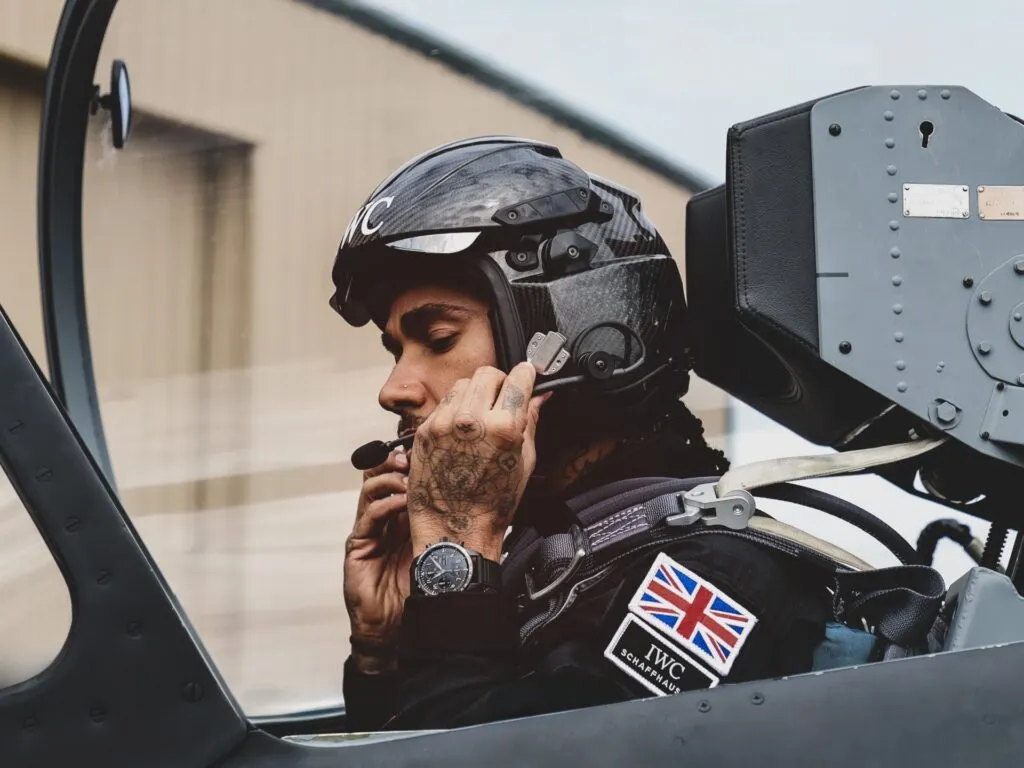Swapping car engines for jet engines! F1 driver Lewis Hamilton embarks on an astronaut training exercise with IWC Schaffhausen
One of the most successful racing drivers of all time, Sir Lewis Hamilton has always dreamed of going beyond the racetrack and outside the atmosphere. As his partnership with IWC Schaffhausen draws to an end the luxury watch label made this dream a reality with a session on the Polaris Programme flight training for astronauts.
Taking to the skies in a L-39 Albatros jet Hamilton was joined by children from Dibia Dream social STEM education programs as a reminder that if you train hard, stay focused and work with dedication, you can become anything you want in life and achieve great things. Their presence served as a reminder of Hamilton’s incredible journey, from his humble upbringing in karting to becoming one of the most acclaimed drivers in the history of motorsport.
Drawing a comparison between flying the plane and Formula 1, Lewis observed that “it’s very different to F1, the blood never leaves your head. When you’re turning the plane, you feel the blood leaving your body, your chest gets heavy and it’s hard to breathe.”
On the day, Lewis Hamilton wore a unique race suit – featuring a dedicated ‘space mission’ patch with his starting number 44. As a nod to his astronaut flight training, Hamilton will be wearing this suit during this weekend’s race at the Lusail International Circuit in Qatar.
Hamilton was put through the same training used to prepare the Inspiration 4 and Polaris Dawn crew for commercial spaceflight missions. John “Slick” Baum, Philanthropy Director at Polaris and Lewis practiced accelerations and decelerations to experience lateral G forces, which lasted almost one hour, simulating the ascent of a rocket as well as higher G loads by banking or pitching the aircraft hard. A highlight was flying a parabola figure for a zero-g demonstration, during which Lewis Hamilton briefly experienced the feeling of weightlessness. In flight, the F1TM pilot pulled a maximum of 7.5 G, which is more than astronauts typically experience on ascent.





